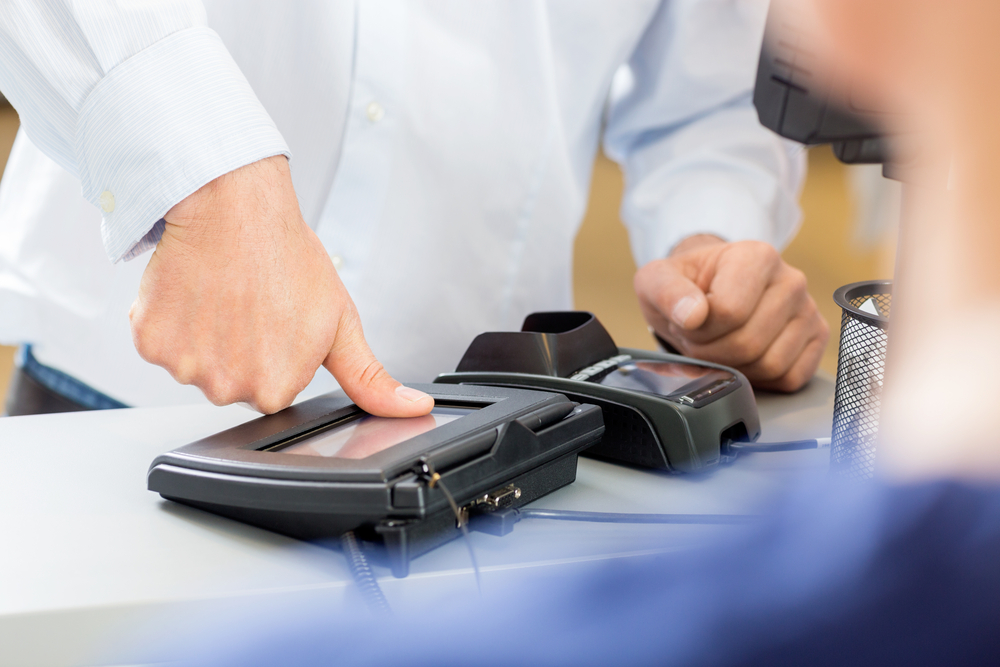

New research from Visa has revealed that a clear majority of people are in favour of combining biometrics with their payment process.
The Visa Biometric Payments study surveyed over 14,000 consumers across seven European markets. And it comes at a time when the use of biometric technology is being actively debated as a way to improve transaction security.
And the Visa survey revealed that two thirds (73 percent) of people believe that two-factor authentication, where a form of biometrics is used in conjunction with a payment device (i.e. a mobile device or card reader), would make for a more secure payment authentication.
Half of people (51 percent) believe that biometrics would make payments faster and easier, and 68 percent want to use biometrics as a method of payment authentication. The survey revealed that biometrics would mostly help online retailers, as nearly a third (31 percent) of people have at some stage abandoned a browser-based purchase because of the payment security process.
And it seems that 33 percent of people appreciate the fact that biometric authentication means their details would be safe even if their device was lost or stolen.
“Biometric identification and verification has created a great deal of excitement in the payments space because it offers an opportunity to streamline and improve the customer experience,” said Jonathan Vaux, Executive Director of Innovation Partnerships. “Our research shows that biometrics is increasingly recognised as a trusted form of authentication as people become more familiar with using these capabilities on their devices.”
“Biometrics work best when linked to other factors, such as the device, geolocation technologies or with an additional authentication method,” said Vaux. “That’s why we believe that it’s important to take a holistic approach that considers a wide range of enabling technologies that contribute to a better end-to-end experience, from provisioning a card to making a purchase to checking your balance.”
But most people are comfortable with fingerprints, as 53 percent of people expressed a preference for fingerprint over other forms of biometric authentication when using it for payment. The other biometric choices such as voice or facial recognition as a payment method are much less popular.
The survey also found that 48 percent of respondents want to use biometric authentication for payments when on public transport. 47 percent want to use biometric authentication when paying at a bar or restaurant, and 46 percent want to use it to purchase goods and services on the high street at a coffee shop or fast food outlet for example. 40 percent want to use it when shopping online and 39 percent when downloading content.
Biometric technology is seeing increasing use of late, not just because of its incorporation into mobile and computing devices.
Earlier this year HSBC launched new biometric logins for its customers. Barclays also allows some of its corporate clients and Wealth customers to log in to their accounts using a biometric reader, and also has voice recognition software, enabled for certain users, with RBS and NatWest also offering fingerprint technology to some customers.
Previous research has found that younger British consumers are the most comfortable with using biometric data to verify their accounts.
Do you know all about biometric technology? Take our quiz!
All Cybertrucks manufactured between November 2023 and February 2025 recalled over trim that can fall…
As Musk guts US federal agencies, SEC issues summons over Elon's failure to disclose ownership…
Moonshot project Taara spun out of Google, uses lasers and not satellites to provide internet…
Pebble creator launches two new PebbleOS-based smartwatches with 30-day battery life, e-ink screens after OS…
Amazon loses appeal in Luxembourg's administrative court over 746m euro GDPR fine related to use…
Nvidia, xAI to participate in project backed by BlackRock, Microsoft to invest $100bn in AI…